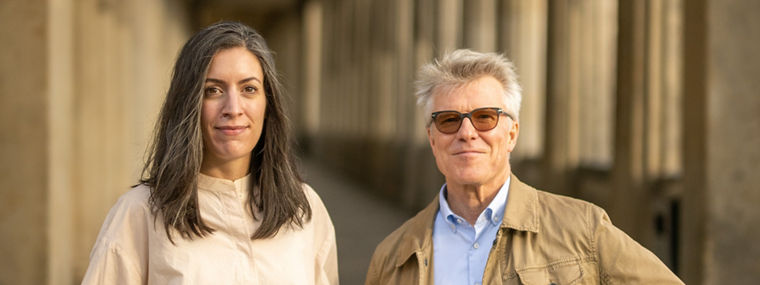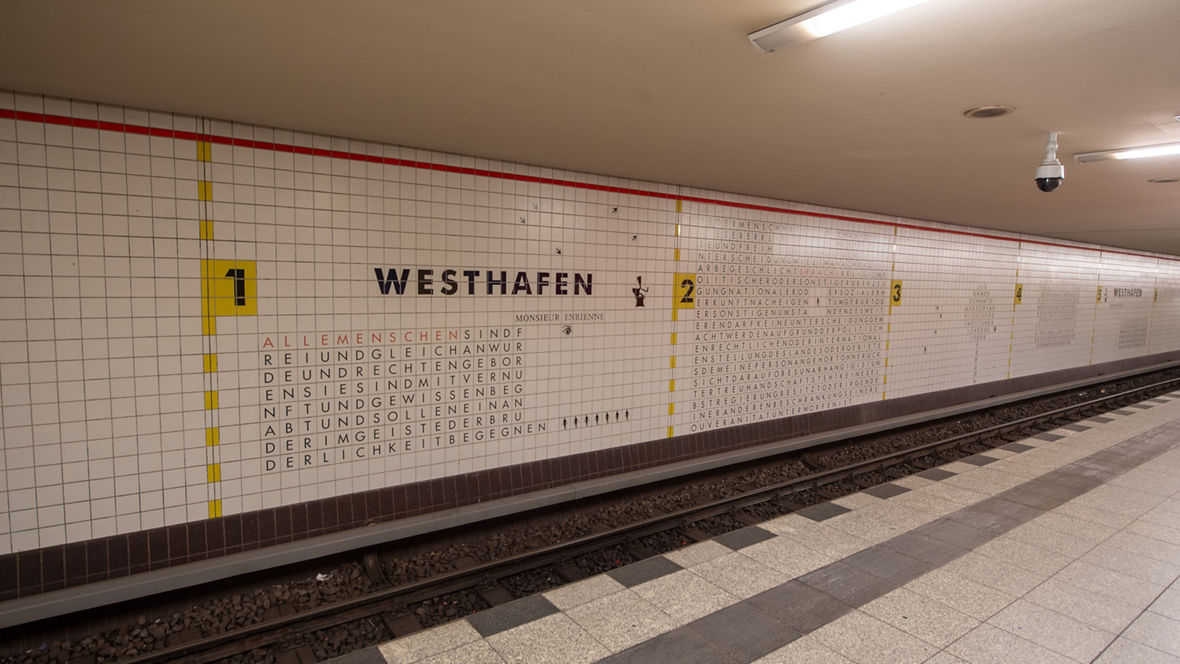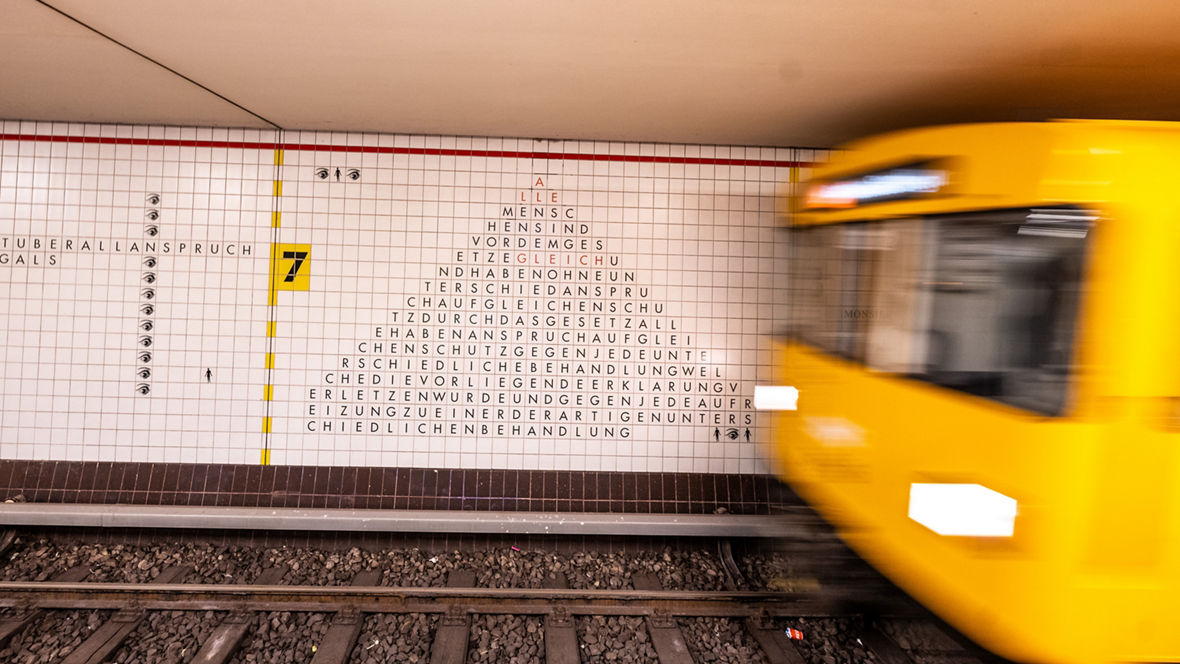Safeguarding human rights - an ongoing challenge
In Dialogue
The sun is just rising, beaming its rays between the pillars of the colonnade in front of the museum and the nearby cathedral. It is already pleasantly warm, and Laura Curtze (former head of Human Rights and Labor Standards at the German UN Global Compact Network) and Gerald Breyer (former group human rights officer at Evonik) are meeting to discuss human rights.
They have both been involved in promoting human rights in various roles for many years.

Laura: Hello Gerald, I think there are some really interesting points about human rights on the agenda for today’s meeting. I’d like to talk about Germany’s new law on due diligence in the supply chain.
I’m interested in what Evonik is doing to implement the new requirements. After all, they are not confined to the new law: Other stakeholders require companies to comply with them too.
Gerald: In 2022, we conducted our first internal human rights risk analysis, which we also extended to include our suppliers.
Laura: It’s quite common not to realize that topics are connected to human rights. What were the main findings of your risk analysis?
Gerald: In some areas, such as palm oil, we were already aware of the risks. Other risks were identified, and now we’re working through them with our suppliers so they can be ruled out in the future. For us, the risk analysis is a big step in understanding exactly what issues we as a company need to address.
Laura: Yes, a risk analysis creates transparency. It should be standard procedure at every company. How about a policy statement on human rights? Have you already got one? And has Evonik got a complaints procedure for reporting and documenting suspected breaches of human rights?
Gerald: Evonik has had a policy statement on human rights for some years, and we revised it in light of the risk analysis. It was adopted by the executive board in November 2022 and has been available on the intranet and internet since then. (more)
Evonik has also had a complaints mechanism for a long time. This is an online system in 20 languages where people can report breaches or potential breaches of regulations. Absolutely anonymously if they wish.
We decided to take steps to raise employees’ awareness early on. There is mandatory training to enable our employees to recognize and avoid risks relating to human rights.
Laura: If human rights risks are addressed collectively—giving due consideration to civil society, the corporate sector, and politics—we can find effective solutions for the topics we have mentioned.
It’s important to keep in mind that, generally, the human rights due diligence process is not something instantaneous. It’s a continuous, stepwise process that has to be constantly refined and improved.
Gerald: As a company, we need to be aware that the German legislation on due diligence in supply chains is not the end of the road. The EU is currently working on a corporate sustainability due diligence directive. So there will be more aspects for companies to address in the future.
That shows that safeguarding human rights remains an ongoing challenge.
The German Act on Corporate Due Diligence Obligations in the Supply Chains …
- came into force on January 1, 2023; it applies to all companies based in Germany that have 3,000 or more employees.
- requires all companies based in Germany to comply with human rights and environment-related due diligence obligations within their own business area and in their supply chain.
- provides for fines and exclusion from public tenders for failure to comply with the legal provisions.
Evonik’s activities to safeguard human rights1
- Establishment of a human rights risk management system and regular risk analyses
- Appointment of a group human rights officer
- Publication of a policy statement on human rights
- Preventive measures (training, etc.)
- Documentation and duty to report to the regulator
1Selected examples.
Westhafen subway station - a human rights station

For Laura and Gerald, the day ends at Westhafen subway station in Berlin. This station draws attention to the importance of human rights and encourages people to reflect on them.
INSCRIRE. To write human right–an art project with a global reach
Westhafen subway station has been a “human rights station” since 2021. It was the fifth human rights station in the worldwide INSCRIRE art project, following subway stations in Paris, Brussels, Stockholm, and Lisbon.
Where better to draw people’s attention to human rights than somewhere they pass through every day?
The walls of the station are divided into 20 sections, each of which represents an article from the United Nations Universal Declaration of Human Rights.
The key feature is that all spacing between the words and all punctuation have been removed, so readers have to engage their brain and reconstruct the text piece by piece. Challenging and thought-provoking! Some texts are fairly easy to decipher, while others are more difficult.
In the podcast
Laura Curtze (former head of Human Rights and Labor Standards at the German UN Global Compact Network) and Gerald Breyer (former group human rights officer at Evonik) are meeting to discuss human rights, the German Supply Chain Sourcing Obligations Act and the duties of the Human Rights Officer at Evonik.

In the video
Laura Curtze and Gerald Breyer in conversation about…
…the genesis of the Supply Chain Sourcing Obligations Act, its implementation at Evonik, and the Peer Learning Group Business and Human Rights, in the German UN Global Compact Network.
Human rights: Safeguarding human rights—an ongoing challenge
This website embeds YouTube videos. To load the YouTube player and view the video at this point, please first agree to the transfer of your personal data to Google. For more information, please see Evonik Privacy Policy
Laura Curtze (former head of Human Rights and Labor Standards at the German UN Global Compact Network) and Gerald Breyer (former group human rights officer at Evonik) in conversation about the genesis of the Supply Chain Sourcing Obligations Act, its implementation at Evonik, and the Peer Learning Group Business and Human Rights, in the German UN Global Compact Network.



